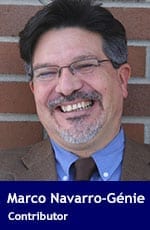 There is wisdom in the longstanding adage about offering unsolicited advice, which is independent of whether the advice given is good, bad or petty. This is because it’s difficult to offer unsolicited advice without actively joining or appearing to join a busybody club.
There is wisdom in the longstanding adage about offering unsolicited advice, which is independent of whether the advice given is good, bad or petty. This is because it’s difficult to offer unsolicited advice without actively joining or appearing to join a busybody club.
Publicly given ‘advice’ always begs the question of intentions, agendas and ambitions. The former leader of the now-defunct Wildrose Party, Brian Jean, likely knew this when he addressed his recent public advice to Alberta Premier Jason Kenney.
The mention of how the premier ought to eat and sleep seems unfortunate. It falls into the busybody column, risking the valuable part of this ex-leader’s critique to be dismissed. Governments listen to advice arising from a field of competency and expertise, not from gossip.
However, the suggestion that Alberta ministers should surround themselves with the mature counsel of people who understand their constituents is exceptionally good advice.
Alas, the implications and underlying assumptions in his argument are terrible. They seem to reinforce the Laurentian xenophobic stereotype about the agrarian Prairies, even while he accuses outsiders of seeing Albertans through stereotypes.
In Jean’s opinion, there need to be fewer people working for Alberta ministers who recently “moved to Alberta for the first time.” He went on to say that “Albertans would be surprised by how many of this government’s top staff and bureaucrats aren’t from Alberta.”
Are Albertans scandalized by these things?
Most Albertans typically don’t care where people are from, what religion they embrace, nor their sexual orientation or skin colour. They care about whether someone can do the job they get paid to do. It’s performance that counts. Albertans care about results.
According to Jean, however, people who recently come from away don’t understand Alberta or Albertans. Is he presupposing that only Albertans or the people whom he calls “real Albertans” can understand us?
The outsiders “think they get us. But they don’t,” he wrote. Albertans are not insularly suspicious of outsiders, even those recently arrived; that’s not the face of contemporary Alberta. Albertans welcome those who arrive from elsewhere to work in the province, whether from within Canada or from abroad.
It’s likely true that someone who just arrived in Alberta may not understand Alberta. But it’s also true that many born in Alberta don’t have the instincts to understand Albertans. Further, it’s true that there are many Albertans “who are not from here” but understand Albertans well and love the province as much as one born here. That love is their “skin in the game.”
Being born in Alberta or living there for a long time doesn’t immediately guarantee that one can do any job well or even better than someone from elsewhere. The excellence of individual Albertans is not determined by birthplace but by an approach to success, by an ethic of hard work, personal autonomy, individual enterprise and problem-solving.
People from elsewhere who exhibit some of these qualities are most likely to plug into Albertan culture very well (the premier himself wasn’t born in Alberta). Albertans welcome and encourage such people to be among us.
Similarly, any clever observer of human nature and political culture freshly arriving somewhere is often able to make meaningful observations and detect nuances, differences and similarities, foundational beliefs and cultural premises more pointedly and accurately than someone who doesn’t have the comparative experience of being from elsewhere. People with cultural sensitivity who have travelled or studied abroad have a strong sense of this experience. The question is skill, not origin.
Whether one is from Alberta or “from away” must never be the focus. Albertans are genuinely welcoming. There’s no need to perpetuate stereotypes about them.
The crux of the issue is whether the people who surround the premier and his ministers can do the job well and it is fair to say, looking at the polls, that Albertan voters find them wanting.
Voters find the current provincial government falling short on energy policy, interprovincial affairs and the policy-induced COVID-19 crisis, among other things.
Surely, some of that needs correcting. The wisdom of unsolicited advice aside, casting oblique dispersions on people’s abilities (or lack thereof) because they’re not from Alberta will always be a bad idea.
Marco Navarro-Génie is a senior fellow at the Frontier Centre for Public Policy and president of the Haultain Research Institute. He is co-author, with Barry Cooper, of COVID-19: The Politics of a Pandemic Moral Panic (2020).
Marco is one of our Thought Leaders. For interview requests, click here.
The views, opinions and positions expressed by columnists and contributors are the authors’ alone. They do not inherently or expressly reflect the views, opinions and/or positions of our publication.


